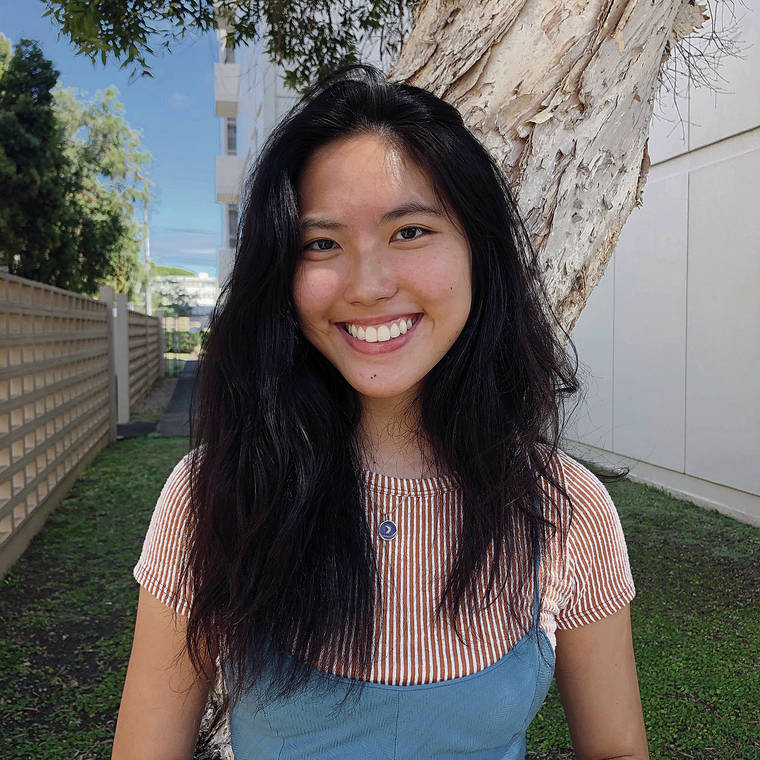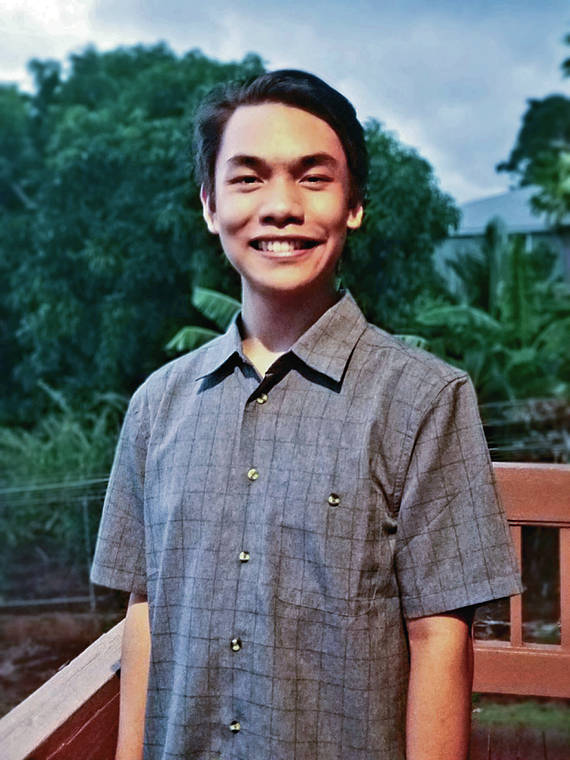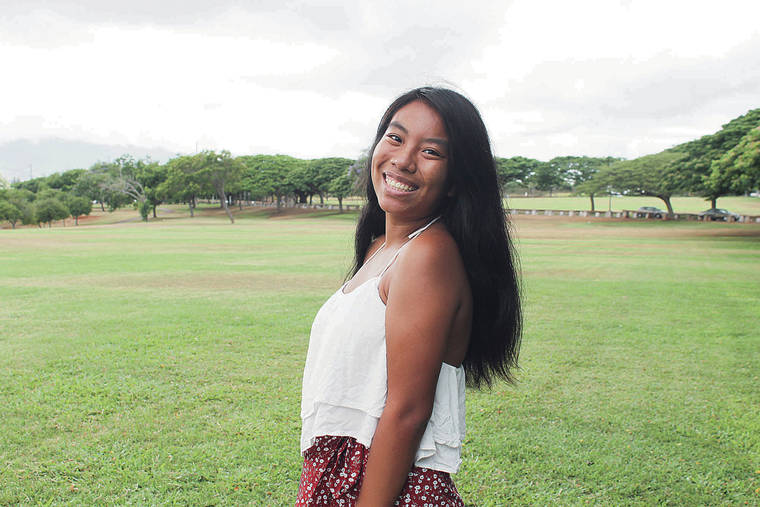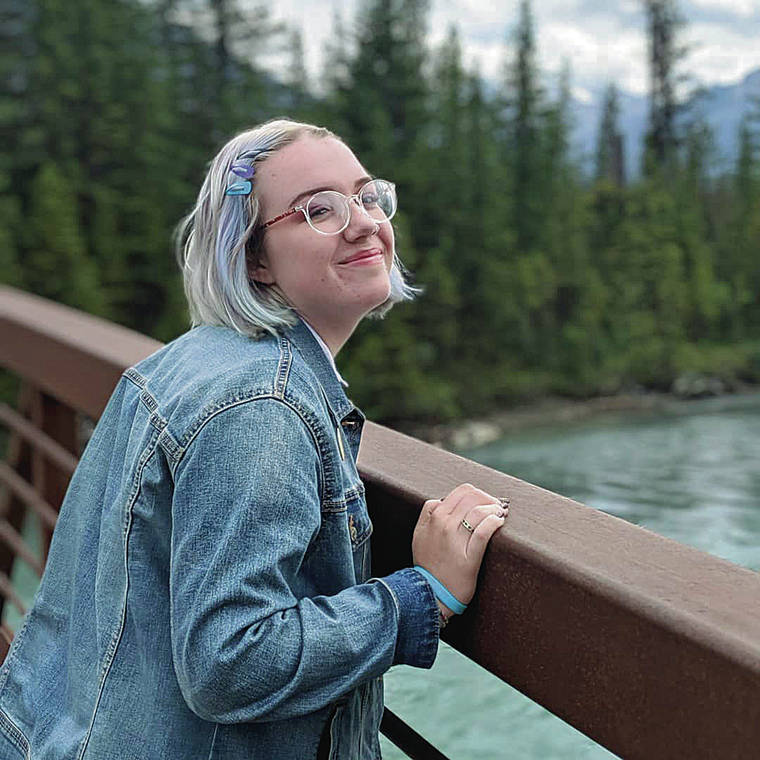Hawaii students create a youth-oriented voter guide

COURTESY PHOTO
Anna Chua

COURTESY PHOTO
Eric Jonah Lorica

COURTESY PHOTO
Erin Enriques

COURTESY PHOTO
Lucy Fagan




A hui of college and secondary school students known as Ho‘ohuli have created an online voter guide geared toward their generation and the mission embodied in their name, which means to turn, to change or to reform.
“We wanted to create a platform in which youth voices could come to be amplified,” said Eric Jonah Lorica, an incoming sophomore at the University of Hawaii at Manoa. “Our mindset was putting youth voices first, and finding out what the candidates were saying in response to what the youth find important.”
The voter guide on their new website, hoohuli.org Opens in a new tab, lines up candidates’ positions side by side on issues in an accessible way, aiming to engage young people and boost their turnout in the upcoming election. They focused on Honolulu County: the City Council’s contested races, as well as elections for mayor and prosecutor.
Erin Enriques, who will soon be a sophomore at American University in Washington, D.C., said Millenials and Generation Z are sometimes dismissed as “just kids who don’t need to get involved.” But she pointed to their ability to mobilize mass movements in Hawaii and elsewhere.
“We’ve gone above and beyond being involved,” Enriques said in an interview. “People have done organized protesting through Black Lives Matter, and for climate change, and through March for Our Lives — all of that was started by youth.”
“We want to keep that movement going, but not just doing grassroots protesting but being a resource for those activists, pushing for legislation as we kind of rise more into society,” she added.
Don't miss out on what's happening!
Stay in touch with breaking news, as it happens, conveniently in your email inbox. It's FREE!
Ho‘ohuli emerged out of Community Change Forums in April that brought together students from middle school through college in various council districts. Rather than in-person events, they were Zoom forums because of the spread of the coronavirus Opens in a new tab. The focus was on building a more resilient Hawaii with a focus on social and environmental justice, Lorica said.
The group is trying to spread the word about the voter guide via social media, word of mouth and more traditional outlets.
Ho‘ohuli’s partners include the Sierra Club Oahu Group, HawaiiKidsCAN Action Fund, HART Sustainable Mobility Lab, Blue Zones Project and Code for Hawaii.
To pull together information for the website, about 16 students took part in a weekend “research-a-thon” on July 18 and 19.
“We assigned people different candidates, races, and they would research a specific topic,” said Lucy Fagan, 16, a student at Myron B. Thompson Academy, a public charter school. “If we couldn’t find their answers, we sent out an email to all the candidates.”
David Miyashiro, executive director of HawaiiKidsCAN, said he found it powerful to witness the young people organizing to strengthen Hawaii’s future in the midst of the coronavirus pandemic.
“Because there is so much happening in the world, these forums took on a whole new relevance,” Miyashiro said. “You are staring inequity in the face in a way that I think was quite unusual. It was a hopeful way for youth to process what was happening and envision a more positive future that they would inherit.”
Ho‘ohuli has broader goals than simply getting out the vote. The website includes interviews on issues and is a “living document” that allows people to submit quotes to share their opinions and links to resources.
“The goal of our program is not just about voting,” said Anna Chua, a junior at UH Manoa. “Beyond voting how do we hold elected representatives accountable, how do we ensure that these really important conversations about race and class are being held at the government level?”
While it might be natural for people to focus on the negative at the moment, the students said they are looking to highlight ways out of problems.
“Something I think about is when you hit the bottom the only way you can go is up,” said Lorica, who is majoring in civil and environmental engineering. “It’s going to take time. Things can take years, many years. It’s having the patience and doing the little things, taking baby steps.”
“For us, this is a big step out of our comfort zone,” he added. “The thing that gives me hope is that we can provide an example of how to move forward through these crises and come together as one.”

 Stay updated on Hawaii and national elections coverage
Stay updated on Hawaii and national elections coverage


